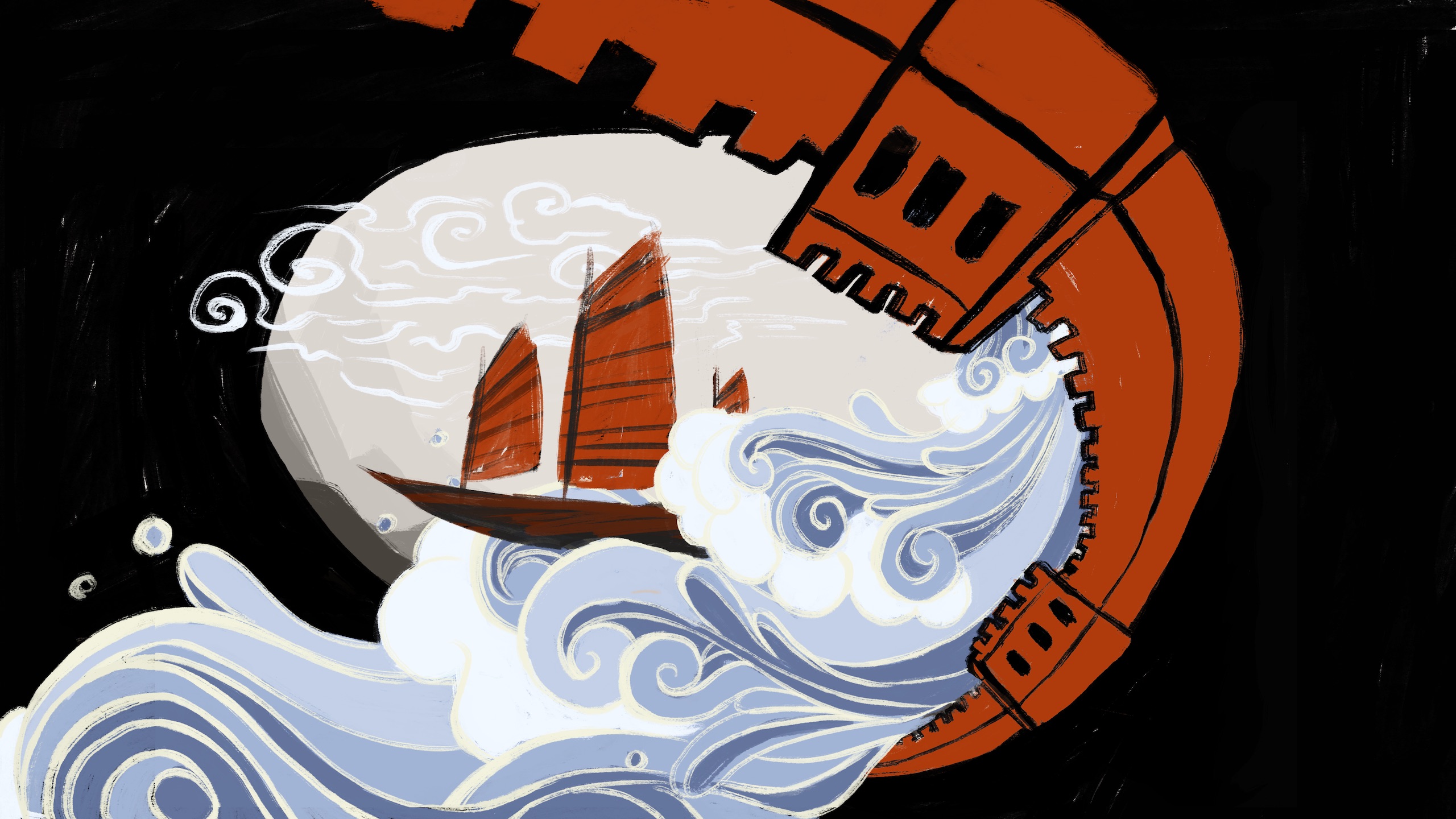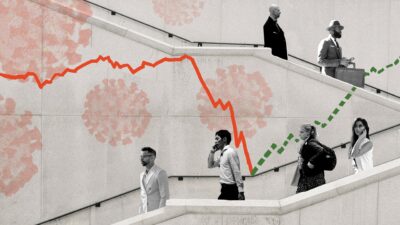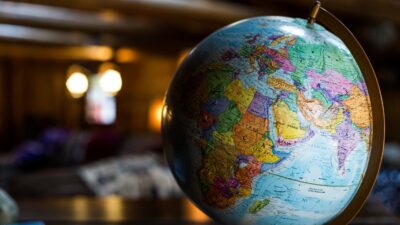Kishore Mahbubani

What China’s pandemic response reveals about its past – and its future
It’s quite shocking how much better China has performed in responding to COVID-19 than most Western governments. Take as one metric, deaths per million: in China it is less than 10, in many Western countries it is above 600 (the UK), 800 (Belgium), in France it’s above 400 and in the US it’s about 600.
China is the first major economy to recover from COVID-19 and the first major economy to record positive growth in the second quarter of 2020.
Remembering history, trusting science
China is poised to emerge faster and stronger from the pandemic because, unlike the USA, it has been investing in the machinery of government for the past 30 years. After Ronald Regan proclaimed “government is not the solution to our problems, government is the problem” the quality of talent joining the US public service declined. At the same time the fiercely meritocratic system in China has produced some of the best public servants anywhere in the world.
Investing in modern science and technology is China’s means of never again becoming another country’s plaything: note China used western science, not traditional Chinese medicine, to fight the pandemic. By contrast President Trump ignored science and technology, even refusing for many months to wear a mask, unlike President Xi Jinping.
China’s other major advantage is its sense of purpose, meaning its motivation not to revisit its so-called ‘century of humiliation’ from 1839 – 1949, when China was internally divided and subjected to control by foreign powers.
What the Chinese people fear most is chaos: 4,000 years of history have taught the Chinese that ‘the weaker the government, the more ordinary people suffer’. So, when a strong central government asserts authority and prevents chaos, the Chinese people are happy. The Chinese people have no desire to weaken their government, as is the impulse in the West.
China has dealt decisively with its ‘second wave’ outbreaks – not only because it is authoritarian and can act in a decisive manner (contract tracing, shutting neighbourhoods) but it also has the world’s highest level of national trust in a government, according to the Edelman Trust Barometer and a Harvard Kennedy School study.

The Asian Century
During the 2008 financial crisis, China’s massive stimulus program sent national debt very high. This time the Chinese have resisted going for a huge stimulus package: two trillion yuan of assistance and 4 trillion-yuan package of cost cutting. Given the Chinese economy is 14 trillion yuan, that is not a very big package relative to the size of the Chinese GNP.
The 21st Century will be the Asian Century: Not because Asian societies have arrived but rather because they live with a deep sense of insecurity and are engaged in a mighty struggle. Insecurity and its cousin, paranoia, are very powerful motivating factors in human behaviour. At the end of the Cold War the US and its Western allies made a key mistake: they believed they had arrived at the ‘end of history’. The famous essay by Francis Fukuyama ‘The End of History’ sadly did a lot of brain damage to the West because it put the West, and especially the USA, to sleep at precisely the moment when China and India were waking up after 200 years of slumber.
For the past 40-50 years, the East Asians have been sending students, their experts and their government officials to Europe and to America to learn ‘why are they doing so much better than us?’ Learning should be a two-way street. But no European government, no American authority, is coming to learn from East Asia and that I find quite shocking. COVID-19 will accelerate the move towards the Asian century because the Asian countries are still learning and adapting and changing, whereas Europe and America are still not aware they need to make some serious structural adaptations to the new Asian century.
Amartya Sen, the Noble Prize-winning economist, said for societies to succeed you need the invisible hand of the free market and the visible hand of good governance.
Throughout East Asia people have not tried to undermine or weaken institutions of governance, they have sought to strengthen them. In America, especially, they believe the invisible hand is all you need. In fact, the words ‘good governance’ is considered by many Americans to be an oxymoron. The idea of ‘good governance’ is not well understood in American society. As a result, over the last 20-30 years very important US federal agencies like the Federal Aviation Administration, the Food and Drug Administration, the Centre for Disease Prevention and Control, have been undermined. And they have performed very badly in response to the recent crisis.
Clearly the US needs to reinvest in institutions of governance and pick the best people – not to work in Wall Street – but to go and work in government agencies. That’s what East Asia has done. And that’s what America is not doing even up to today.
The last Great Wall of China
However I would make a distinction between the attitude of the United States and the European countries: Europe still believes the world needs strong institutions of global governance. The most eloquent spokesman upholding multilateralism in the world today is President Macron of France. When the United States notified it will leave the World Health Organisation, this was, as Richard Horton, the editor of The Lancet said, a crime against humanity, because the poor countries in the world really need the WHO to deal with COVID-19. Not a single European country left the WHO. In this situation, there is a convergence between East Asia and Europe: the world needs stronger global multilateral institutions.
Indeed, one of the best speeches on the importance of global multilateral institutions was given by President Xi Jinping in Davos in January 2017. Across history, the Chinese have learnt the biggest mistake they made was to build walls to keep the world out: when the rest of the world was engaging and developing China stagnated and suffered. China will never again build a Great Wall of China. President Xi used a dynamic metaphor in his Davos speech: for China to succeed, it was necessary to dive into the choppy ocean of globalisation. China struggled, it swallowed sea water. Life was difficult. But as a result, China became a stronger swimmer.
China is the world’s number one trading power and therefore it is most vulnerable to any retreat from globalisation. If the World Trade Organisation is weakened – if the US were to leave it, then China would also suffer.
China threats
Another vulnerability for China is sluggish global economic growth, which will happen if the US and Europe take a long time to recover from COVID-19.
And China’s third vulnerability is geopolitical: The last few years has seen a deterioration in China’s relations with some of its neighbours like India, but also with Canada and Australia.
I think China has to ask itself what it can do to stop this slide. The defining force in global politics for the next 10 to 20 years will be the US/China geopolitical contest. And the best way for China to manage this geopolitical contest is to improve its relations with other countries in the world.
At the end of the day, I am an optimist – I know the conventional wisdom is that after COVID-19 there will be deglobalisation, but I disagree. I think after COVID-19 there will be re-globalisation. Paradoxically, COVID-19 has locked up our bodies but it has opened our minds to the world. I think we will be excited to re-engage with the rest of the world. I expect international trade to grow and the law of comparative advantage will not go away. And the countries that open up and integrate with the rest of the world will do well, and countries like North Korea that don’t, will not. And that is a choice all countries have.
Kishore Mahbubani is a Distinguished Fellow at the National University of Singapore’s Asia Research Institute.
Share
We believe in open and honest access to knowledge. We use a Creative Commons Attribution NoDerivatives licence for our articles and podcasts, so you can republish them for free, online or in print.






